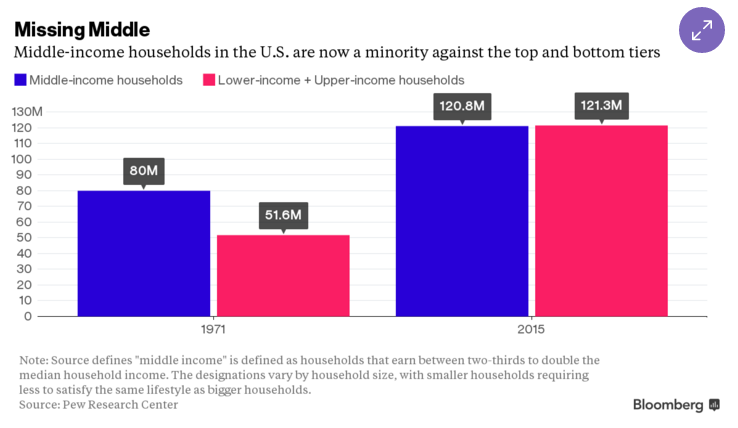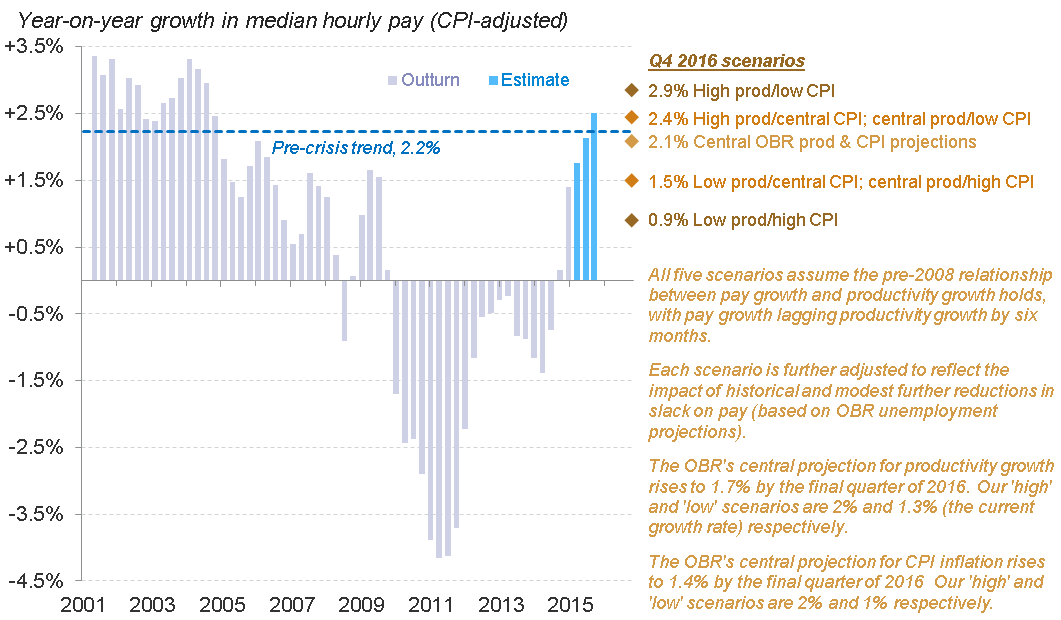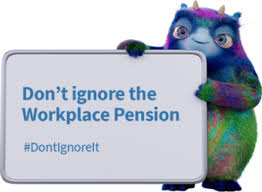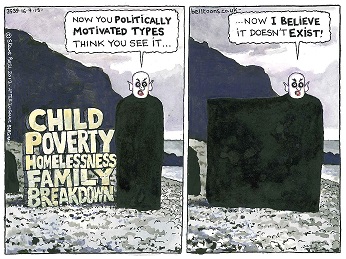Work TV
Watch our TV Channel dedicated to the ‘World of Work’. Explore our video library for informative videos featuring career opportunities at leading companies, franchising opportunities, further education and recruitment professions and their services.
Simon Collyer
Want advice on leading a healthier lifestyle in Essex?
Essex County Council is committed to ensuring Essex residents enjoy good health and wellbeing. The Council are aware people don’t like to be told what to do and don’t want to feel that they’re being nagged by those in authority. This is why the Council developed Lifestyle Essex; a free mobile app for members of the public and professionals to use as part of their job and daily lives.
The Lifestyle Essex mobile app can be found at the following: App Store or Google Play
Ireland's School Secretaries and Caretakers Get Recognized
Dublin Bay North Labour TD Sean Kenny has welcomed the announcement that as a result of arbitration, school secretaries and caretakers in grant funded schools will see an increase to their pay packets.
Notifications have been sent out by the Department of Education today which puts in place an increase in pay that has been recommended for School Secretaries and Caretakers, of 10% between 2016 and 2019. In addition, a minimum hourly pay rate of €13 for such staff will be phased in over the same period, which begins on January 1st."
ABC Comment: Happy New Year to Irelands school secretaries and caretakers. Your efforts are being recognised.
The .99p (cent) Economy
Donald Trump may be more Donald Chump to some, but this infographic (a trendy name for a graph we always thought) shows how the middle class have shrunk in the USA. Trumps power base is very much this lower demographic. 'The Donald' appeals not so much the working class, but to the USA’s whole under-class.
His simple messages, repeated again and again, have appealed to those fed up with the usual suspects.
“You put two politicians, like it’s always been, in the White House, what happens? Nothing, basically,” said one female voter.
The ABC are focused on EU state pensions and benefits and the European labour market and economy, however we do like to look outside our area of focus from time to time. This graph shows how the middle class in the USA have shrunk. Middle Class aspirations are the drivers of a consumer economy. In the dash to the bottom wages wise, these are the customers who once bought cars, boats, motor homes and other ‘nice to haves’ in a consumer economy. Take these away and you have what we call at the ABC - The .99p economy.

DWP Committee Meeting LIVE
House of Commons
Work and Pensions Select Committee
EVIDENCE SESSION: Understanding the new State Pension
9.45am, Wednesday 16 December, Wilson Room, Portcullis House
The new State Pension is a major reform and will affect millions of people currently of working age, starting from April of next year. Although in the long term the reforms will simplify the State Pension, the transition period will be long and complex, and there is a lot of uncertainty about the impact of the reforms among people who will be affected, especially for those now closest to State Pension age.
Concerns have been raised that many of those who will be affected by the changes do not know enough about the reforms or exactly what they will mean for their pensions, especially people who are close to retirement now and may have done most or all of their retirement planning and saving under the "old" system.
Purpose of this session
This is the second of three evidence sessions in the inquiry. This session gives the opportunity to question representatives from Women Against State Pension Inequality (WASPI) campaign, on how the reforms affect women born in the 1950s and their views on improving communications, and pension industry specialists on current public understanding of the policy and recommendations for improvement.
Witnesses:
At 9.45 am
- Anne Keen, Women Against State Pension Inequality
- Lin Phillips, Women Against State Pension Inequality
At 10.30am
- Kate Smith, Aegon UK
- Dr Deborah Cooper, Mercer
- Phil McEvoy, Prospect
YOU CAN WATCH IT LIVE HERE AT THE ABC
Inflation Risks in 2016 Sees Potential Wages Setback
Pick-up in productivity needed to maintain pay rebound into 2016
Return of inflation risks pay growth falling back below trend, following welcome progress this year
Having shown signs of rebounding in 2015, real-terms typical pay growth looks set to fall back in 2016 unless there is a significant pick-up in productivity, according to the Resolution Foundation’s latest quarterly earnings outlook published this week.
With uncertainty surrounding the outlook for productivity and inflation, the Foundation’s modelling – which is based on the pre-crisis relationship between output per hour worked and pay – considers the impact of five different scenarios for productivity and prices on median hourly wage growth in 2016.
The Foundation’s analysis shows that the central OBR projection for productivity growth of 1.7 per cent (by the final quarter of 2016) and CPI inflation of 1.4 per cent would mean typical wages increasing at around 2.1 per cent – less than the current rate of 2.5 per cent, and slightly below the trend pace of pay growth before the crash (2.2 per cent).
Faster-than-expected productivity growth – edging up to 2 per cent, but still below the long-term expectation of 2.2 per cent – coupled with prolonged low inflation (rising to just 1 per cent by the end of the year) could result in typical wages rising by around 3 per cent next year – the fastest growth in over a decade.
However, should productivity growth fail to progress beyond its current rate of 1.3 per cent, the pace of real wage growth could fall by a quarter (to 1.5 per cent). It could fall even further to less than 1 per cent should inflation also grow more quickly than forecast (to 2 per cent by the end of the year).
The Foundation adds that other factors, such as the amount of spare capacity in the labour market, will also help to determine what happens to pay next year.
However, with key slack indicators such as long-term unemployment, under-employment and job mobility all stabilising in recent months – though still at levels above their pre-crisis trend – they are likely to have less of a role in the strength of real wage growth in 2016 compared to the past year.
Laura Gardiner, Senior Policy Analyst at the Resolution Foundation, said:
“2015 marked the long-awaited return of rising real pay, following a six-year squeeze. But the recent pay rebound owed much to ultra-low inflation, which we’re unlikely to see again next year.
“Pay growth in 2016 will ultimately be determined by whether the recent upturn in productivity is enough to offset rising inflation. On the upside, strong output growth and prolonged low inflation could result in the highest level of real wage growth in over a decade.
“But equally, a failure to build on the early signs of a productivity recovery, combined with a swifter-than-expected return to target inflation, could send real wage growth tumbling to less than 1 per cent. Such a scenario could mean typical pay not returning to its pre-crash level until the next decade.
“There is plenty that businesses and government can do to drive productivity growth. The introduction of the new National Living Wage should help to focus minds on boosting output, particularly in low-paying sectors who are most affected by the new higher wage floor.”
RF typical pay growth projection for Q4 2016, based on different productivity and inflation scenarios

Pensions Automatic Enrollment
Committee launches inquiry on automatic enrolment
The Work and Pensions Committee has today launched an inquiry into pensions automatic enrolment. Under the Pensions Act 2008, every employer in the UK must put certain staff, unless they choose to opt out, into a pension scheme and contribute towards it. Larger businesses are already require to auto-enroll staff. The requirement is now gradually being applied to smaller employers.
The Committee invites written evidence on the implementation of automatic enrolment and, especially, the effects on small and micro employers. In particular, the Committee welcomes submissions addressing:
- the effectiveness of the automatic enrolment process and lessons learnt so far;
- the impact of automatic enrolment on smaller employers and how they plan to mitigate any negative effects;
- Department for Work and Pensions support for small and micro employers in meeting their automatic enrolment obligations, and any recommendations for improvement;
- the suitability of the auto-enrolment earnings threshold and minimum contribution rates;
- the effect of the delays to the implementation of increases to minimum contributions announced in the Autumn Statement; and
- the interaction between automatic-enrolment and other pensions reforms, including the new state pension and pension freedom.
The Committee particularly encourages small and micro employers and their employees to submit evidence.
Heidi Allen, Committee Member, said:
“As a business owner myself, I know how intimidating auto enrolment can potentially be for the smaller employer. While I’m very supportive of encouraging people to save for retirement and the concept of automatic enrolment, I am concerned that some small employers may not have the knowledge or resources to implement the policy. It is vital we communicate to and support these smaller employers so they can meet the new requirements. I hope this inquiry will help us to review the effectiveness of the current process and make recommendations for improvement.”
Frank Field, Chair of the Committee, said:
“Automatic enrolment is generally perceived as being successful to date, but in the early stages of delivery it was only large and medium sized employers that had to meet these new pension requirements. Time has now come for smaller employers, including people who would not consider themselves business people – such as those who employ nannies and carers – to participate. We must ensure they are in a position to cope with these new obligations. We will also look at contribution rates and criteria for inclusion in auto-enrolment, to ensure that the right people are defaulted into saving adequately for retirement.”

Work Capability Assessments
The Work Capability Assessment (WCA) is the test designed and used by the Department for Work and Pensions (DWP) in the United Kingdom to determine whether disabled welfare claimants or those suffering from long-term illnesses are entitled to the main out-of-work sickness benefit: Employment and Support Allowance (ESA). The introduction of the WCA as the gatekeeper to ESA was a crucial part of the out-of-work benefit reforms of 2008 that the next government continued and developed.
The WCA aims to sort sickness benefit claimants into three groups: fit for work; unfit for work but fit for pre-employment training; or fit for neither work nor training. The DWP views this as the first step in a process that helps some disabled people "off benefits and into work" but the testing procedure has proved highly controversial, with concerns loudly expressed about inaccurate decision-making and the difficulties and delays faced by claimants when they launch an appeal.
Atos Healthcare, part of the UK branch of the Paris-based multinational Atos, conducted the core assessment on behalf of the DWP from October 2008 until 1 March 2015, on which date the American firm Maximus took over.
This report downloadable below might interest those being tested.

Text source: Wikipedia
Child Poverty Petition
The governmement wants to scrap child poverty targets. The Child Poverty Action Group (CPAG) are fighting back and you can help.
From CPAG
The government wants to make child poverty disappear. And not by fixing the problem, but by scrapping targets to end child poverty and just measuring how many children have parents in work, and how well they do at their GCSEs (you can read about why this matters here).
So far, over 40,000 people have signed this petition calling on the House of Lords to block the legislation scrapping child poverty targets. That’s amazing – but there are so many more people out there who haven’t heard about the government’s plans to brush child poverty under the carpet.
We believe All Kids Count. When kids grow up poor they miss out – and so do the rest of us. Making sure every child gets a fair chance in life is the right thing to do and the smartest investment we can make as a country.


How Hard Working is Your MP?
We have recently come across a situation where a lady who suffered with epileptic fits wanted to complain about having to attend a Work Related Activity Group even thought it was obvious her epilepsy was very serious indeed. We hope our advice on how to take her case forward helped.
‘Why not contact your MP’ we suggested intially, but the reply came that that her MP ‘was useless’ and not inclined to do anything? We ourselves know of other cases like this. Could it be that some MP’s are briefed not to do anything to aid cases, where injustice is being committed by the DWP against claimants?
MP’s are not employees. The have an Ombudsman that oversees them, but unless a serious offense has been committed, or can be proved, issues like the person simply being lazy comes outside their remit (as we understand it). MP’s do not have ‘Contracts of Employment’. If they do not do their jobs, they cannot be sacked without committing a very serious misdemeanour. MP's can only be voted out of office at a General Election unless they resign causing a by-election. If you have no reason to request help from your MP, and they represent (nationally) a political persuasion that you favour – an MP who really does little work, or who deliberately fails to represent his or her constituents in a fair and even handed manner, could theoretically continue in office as long as their party stays in favour, to the point where they get re-elected almost automatically.
If you have an MP that you feel is not actively representing you, why not tell us? We certainly would give them a right of reply.
We have no firm evidence to support the argument that MP’s from a Party, committed to cutting welfare spending, are deliberately not taking forward complaints by constituents; but it is an interesting idea that was given to us this week by another aggrieved member of the public who was convinced that this was the case.
Live TV DWP Understanding the State Pension
House of Commons
Work and Pensions Select Committee
EVIDENCE SESSION: Understanding the new State Pension
9.45am, Wednesday 16 December, Wilson Room, Portcullis House
The new State Pension is a major reform and will affect millions of people currently of working age, starting from April of next year. Although in the long term the reforms will simplify the State Pension, the transition period will be long and complex, and there is a lot of uncertainty about the impact of the reforms among people who will be affected, especially for those now closest to State Pension age.
Concerns have been raised that many of those who will be affected by the changes do not know enough about the reforms or exactly what they will mean for their pensions, especially people who are close to retirement now and may have done most or all of their retirement planning and saving under the "old" system.
Purpose of this session
This is the second of three evidence sessions in the inquiry. This session gives the opportunity to question representatives from Women Against State Pension Inequality (WASPI) campaign, on how the reforms affect women born in the 1950s and their views on improving communications, and pension industry specialists on current public understanding of the policy and recommendations for improvement.
Witnesses:
At 9.45 am
- Anne Keen, Women Against State Pension Inequality
- Lin Phillips, Women Against State Pension Inequality
At 10.30am
- Kate Smith, Aegon UK
- Dr Deborah Cooper, Mercer
- Phil McEvoy, Prospect
YOU CAN WATCH IT LIVE HERE AT THE ABC























